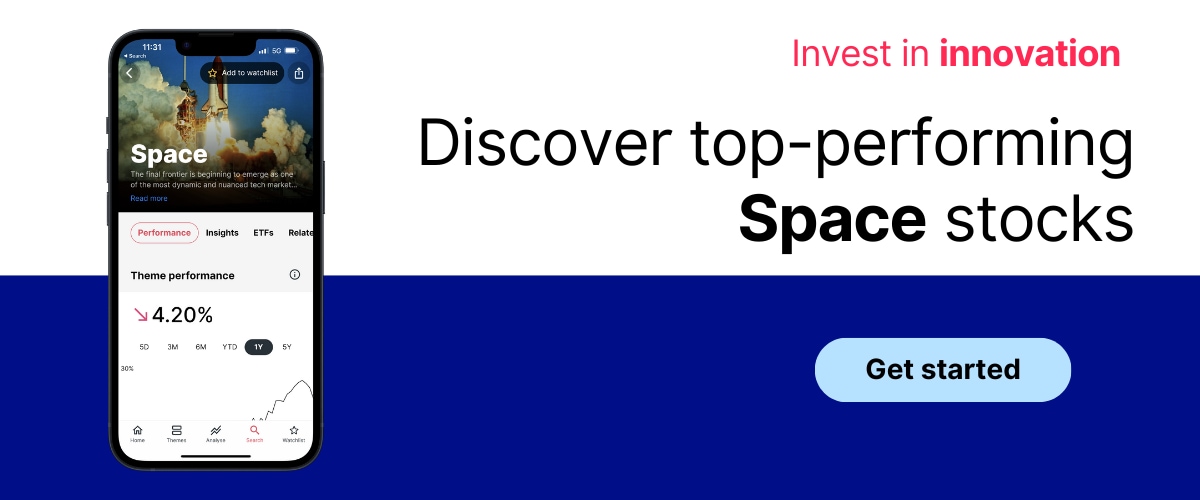Peter Beck, Founder and CEO of Rocket Lab, joins OPTO Sessions to discuss the explosive growth of the space industry and the strategic considerations that underpin its choice of projects, including opportunities and challenges that come with working for government customers.
We Don’t Just Build the Spacecraft
Peter Beck is the Founder and CEO of Rocket Lab [RKLB], which is, in his words, a “one-stop shop” for the space industry.
“I think most space companies are easily defined as a launch company or a spacecraft or satellite company,” Beck tells OPTO Sessions. “What’s unique about Rocket Lab is that we’re both.”
As well as its Electron launch vehicle, Rocket Lab also boasts a thriving satellite and spacecraft division. However, he adds, “what makes us even more unique is that we don’t just build the spacecraft, we build the majority of the components that go into the spacecraft.
“Every reaction wheel or solar panel or even solar cell from a wafer, we produce.”
Having always been interested in engineering challenges, Beck was inspired to found Rocket Lab following a trip to the US, which showed him that many of the projects he viewed as important for the space industry weren’t being worked on by NASA.
“You have the keys to space, and you have the ability to build any infrastructure in it”
“When walls are put in front of you, you can choose one of two things: turn around and go in a different direction, or just start digging a hole under the wall. So I started digging a hole under the wall, and that created Rocket Lab.”
Crystalising Revenue
This year, Rocket Lab has launched the first of four advanced spacecraft designed to facilitate pharmaceutical manufacturing in orbit, in collaboration with Varda Space Industries. This project hinges on the unique potential of zero-gravity conditions for growing protein crystals.
“Certain protein crystals grow differently under zero gravity,” says Beck. Removing gravitational pull means that crystals can grow “in a much more pure sense”.
“The purity of those crystals is very interesting to pharmaceutical companies because they can make more effective drugs,” explains Beck.
There is, though, another benefit for Rocket Lab in partnering with Varda. The results need to be safely landed back on Earth to be recovered, and re-entry into the Earth’s atmosphere from orbit is a major challenge for space companies.
“Every one of these projects is very strategic for us,” says Beck. “The reason we did that project is that at some point in time, we are going to have some astronauts on board a Neutron capsule. I'd much rather learn how to do re-entry with a pharmaceutical crystal than with astronauts.”
Good Government
While commercial partnerships such as these are important sources of revenue and learning for Rocket Lab, much of its revenue comes from government contracts. During the company’s Q4 2023 earnings call last February, Beck said he hoped for a 50/50 split between government and commercial contracts over the next two years.
“I'd much rather learn how to do re-entry with a pharmaceutical crystal than with astronauts”
Its government business is partly the result of Rocket Lab’s 2019 decision to invest heavily into its Launch Complex 2 site on Wallops Island, Virginia. This was Rocket Lab’s first launch site in the US; its location near a NASA facility gave the company closer access to the US government.
Over time, several lucrative contracts have followed. Most recently, on 11 April, the Defense Innovation Unit granted Rocket Lab a $32m contract to develop technology for its Victus Haze project. Victus Haze is the US government’s response to perceived cyber and military threats to US satellites.
On the same day, NASA announced that Rocket Lab’s Electron rocket will launch a test flight for its new Advanced Composite Solar Sail System, or ACS3. Solar sails are propelled by photons, similarly to how conventional sails are pushed by wind, and can potentially achieve speeds faster than conventional rockets — up to 18,600 miles per second, or 10% of the speed of light.
Government contracts such as these increase Rocket Lab’s total addressable market, but Beck acknowledges there are some extra challenges involved when compared with commercial clients. “A commercial customer just wants a thing A government customer wants a thing but also wants to know everything about that thing and how it was made.”
However, he adds, “I don’t see it so much as overcoming issues to work with the government. I think the government has leaned forward very clearly into a commercial space. In our experience, if you create a great product or service that is valuable, then they’re very innovative and try to use it.”
Peter Beck’s Vision for the Future
Rocket Lab’s full-stack space industry offering is at the heart of Beck’s long-term vision for the company’s success.
“My view of the large successful space companies of the future is not a standalone rocket company or spacecraft company. When you combine both together, you have the keys to space, and you have the ability to build any infrastructure in it. At that point, it’s really a question of what service you are going to provide from space.”
Beck views the current era as “the beginning of the democratisation or commercialisation of the space industry. Three decades ago, we were all just standing in front of giant government rockets that launched a few times a year.
“I truly believe that the biggest application is yet to be thought of, let alone executed.”
Disclaimer Past performance is not a reliable indicator of future results.
CMC Markets is an execution-only service provider. The material (whether or not it states any opinions) is for general information purposes only, and does not take into account your personal circumstances or objectives. Nothing in this material is (or should be considered to be) financial, investment or other advice on which reliance should be placed. No opinion given in the material constitutes a recommendation by CMC Markets or the author that any particular investment, security, transaction or investment strategy is suitable for any specific person.
The material has not been prepared in accordance with legal requirements designed to promote the independence of investment research. Although we are not specifically prevented from dealing before providing this material, we do not seek to take advantage of the material prior to its dissemination.
CMC Markets does not endorse or offer opinion on the trading strategies used by the author. Their trading strategies do not guarantee any return and CMC Markets shall not be held responsible for any loss that you may incur, either directly or indirectly, arising from any investment based on any information contained herein.
*Tax treatment depends on individual circumstances and can change or may differ in a jurisdiction other than the UK.
Continue reading for FREE
- Includes free newsletter updates, unsubscribe anytime. Privacy policy



